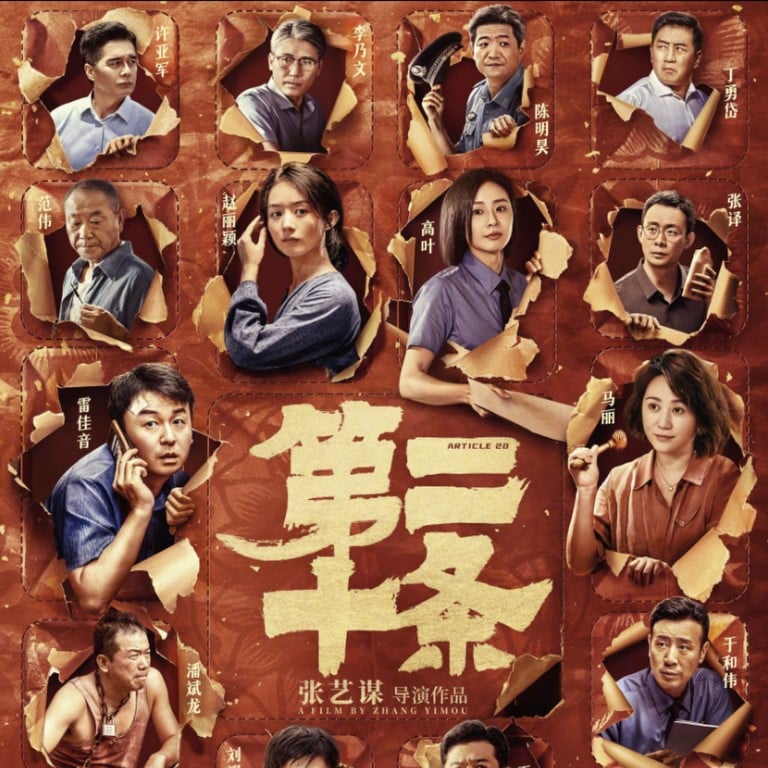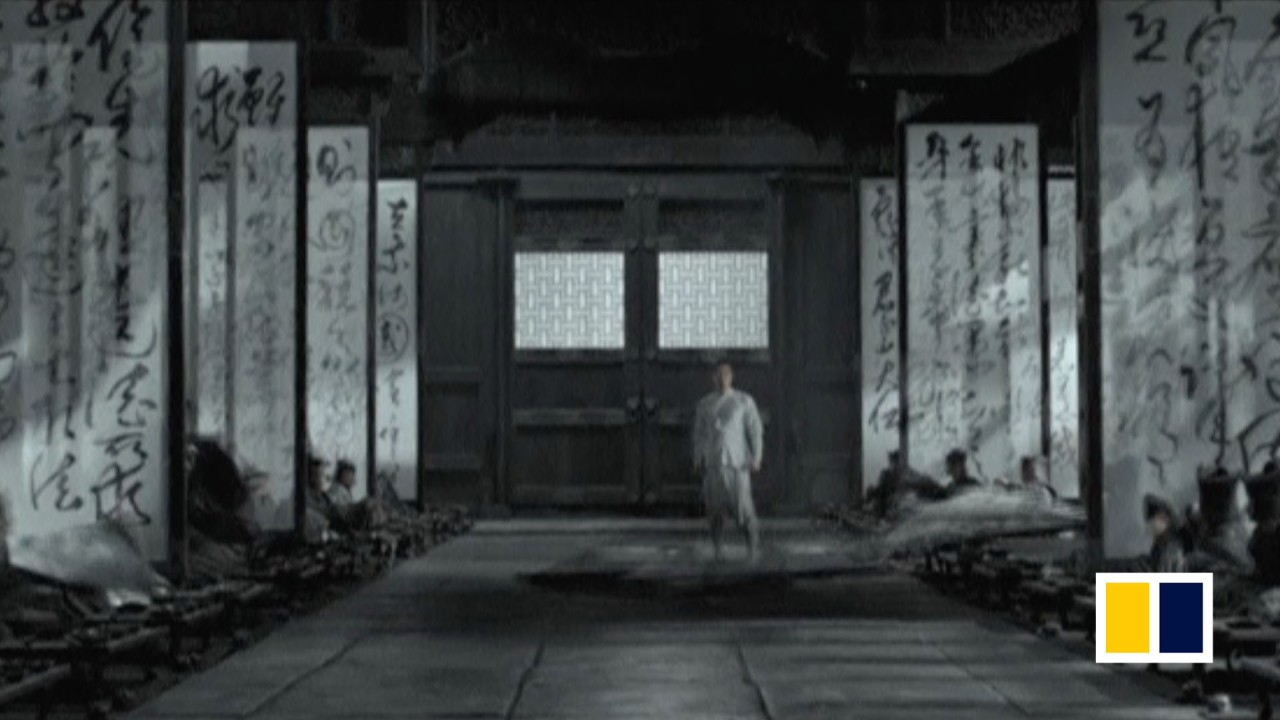
Chinese hit film Article 20 is ‘a fairy tale’ about the right to self-defence, legal experts say
- Top filmmaker Zhang Yimou’s new movie about justifiable defence filled mainland cinemas over Lunar New Year
- The drama, co-produced by China’s top prosecution agency, strays from reality of legal system that prioritises social stability over individual rights, lawyers say
But unlike the comedy or romance films that usually dominate the holiday period, the legal drama Article 20 (Di Er Shi Tiao) explores a controversial issue – the right to self-defence.
The film, co-produced by China’s Supreme People’s Procuratorate (SPP), follows two prosecutors – Han Ming and Lu Lingling – who find themselves working relentlessly to clear villager Wang Yongqiang of charges in the killing of another villager who had bullied him for months and repeatedly raped his wife.
As the story unfolds, the two prosecutors race to collect evidence, redefining the case as a right to self-defence.
China’s big holiday films spark social media debate about body issues and justice
In a scene near the end of the movie, Han delivers a passionate speech in defence of the suspect.
Han tells the court that the defendant in the case, who had seriously wounded another man in a fight after being bullied by him for months, was only defending himself and should be set free. At the public hearing, Han argues that the law should be used to uphold social justice, not to wrongfully punish good people.
“The law should make it more difficult for bad people to commit crimes, not for good people to take action,” he said.
“The law cannot yield to illegality,” Han said, prompting the entire courtroom to erupt in applause. Wang later goes free.
While Article 20 has been a hit with film-goers, it has largely been a miss for a sceptical legal community, which has pointed out how the pursuit of justice depicted in the movie stands in sharp contrast to reality.
Chinese courts, criminal lawyers say, still attach greater value to social stability than one’s right to self-defence, and once charged, such reversals are rare.
In a commentary that went viral on WeChat, one criminal lawyer called the film “a fairy tale” .
China dad turns lawyer to get justice for suicide son who suffered teacher abuse
“Do you believe in [Han’s speech]?” he asked in the post.
The clause has been in place since 1979 but has rarely been used. Only a few cases have successfully cited the article, mostly in situations that attracted intense public attention, lawyers told the South China Morning Post.
Zhu Xiaoding, a prominent criminal lawyer, said authorities did not encourage self-defence and usually asked a victim to cooperate and obey, before filing complaints or petitions.
He Zhiwei, a lawyer at the Beijing Long An Law Firm, said that in the mindset of China’s judiciary, someone who was harmed should seek other options, including fleeing, with self-defence to be used only as a last resort.
“You can run but you should not directly fight back,” he said.
The country’s criminal justice system upheld that those who killed or inflicted violence on others must take responsibility, He said, adding that the legal system would experience more pressure if someone was absolved of responsibility in an act of self-defence that caused injury or even death.
Chinese victim of unsolved poisoning case dies, prompting sympathy and anger
This was mostly because the Chinese government prioritised social stability above all else when it came to legal disputes, said Victoria Hao, a Beijing-based criminal lawyer.
Article 20 idealises the role of prosecutors in seeking a fair judicial system, Hao said, when in reality, it has been defence lawyers pushing for the right to self-defence, while “prosecutors prioritise compliance above all else, especially under the current authoritarian system [in China]”.
Amid the hype about the film, lawyer Xu Xin wrote on his WeChat account about a case he was involved in in 2018. His client, Wang Lang, had killed another man, Li Lei, in a fight. Li had smashed an ashtray and wine bottles on Wang, who fought back.
Wang was originally charged with intentional murder and sentenced to nine years, but Xu convinced the court to reduce the sentence to five years on a lesser charge of “excessive defence”.
“The law of self-defence should not become the ‘law of running away’,” Xu said in his closing argument in the case.
“Wang had said multiple times that he could be wrong, but he did not know what the correct way was,” Xu said. “This is a question that the judge, prosecutors, the public, every one of us has to face … the law should guide public actions, otherwise the public is at a loss what to do.”
In recent years, the situation had improved slightly, He, the Beijing lawyer, said. More and more cases were being defined as “self-defence” as public awareness of the law grows.
Surveillance camera footage of the incident that had been posted online, boosted public support for Yu, who was eventually released without charge.
In 2020, the Supreme People’s Court, the SPP and the Ministry of Public Security jointly published a document on justifiable defence, declaring that it was wrong to always take the side of those who were killed or wounded, or whoever had the louder voice.
The document urged judicial officers to take into account the stress and anxiety of a defendant while facing an unlawful attack, instead of expecting them to act in a calm, reasonable manner.
“Justifiable defence allows citizens to protect themselves when they are violated, but they … cannot abuse the rights granted by law,” the document said.
He said it was the first time there had been a judicial interpretation of the clause. “It is a way to empower judges and prosecutors to apply such provisions in the judicial process.”

.jpg?itok=H5_PTCSf&v=1700020945)

